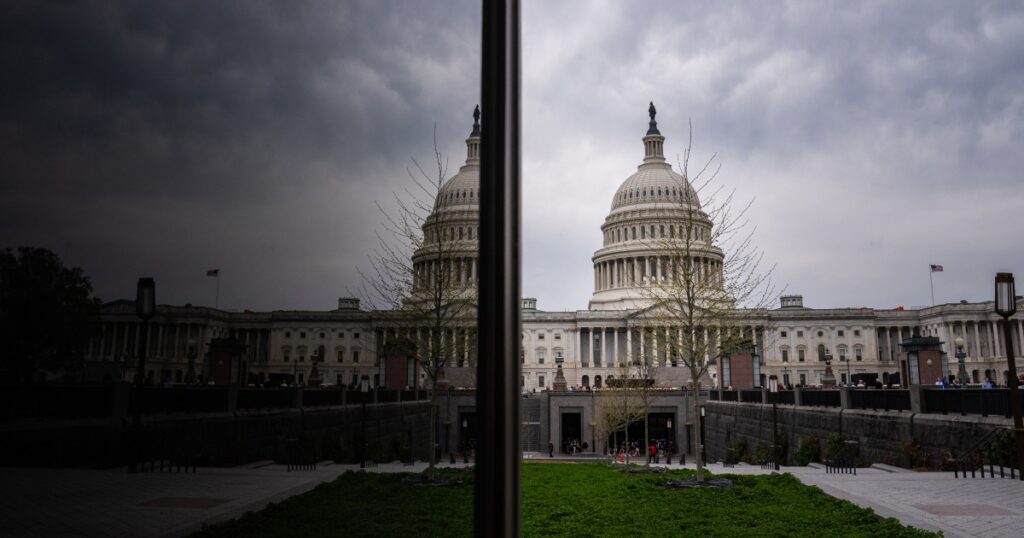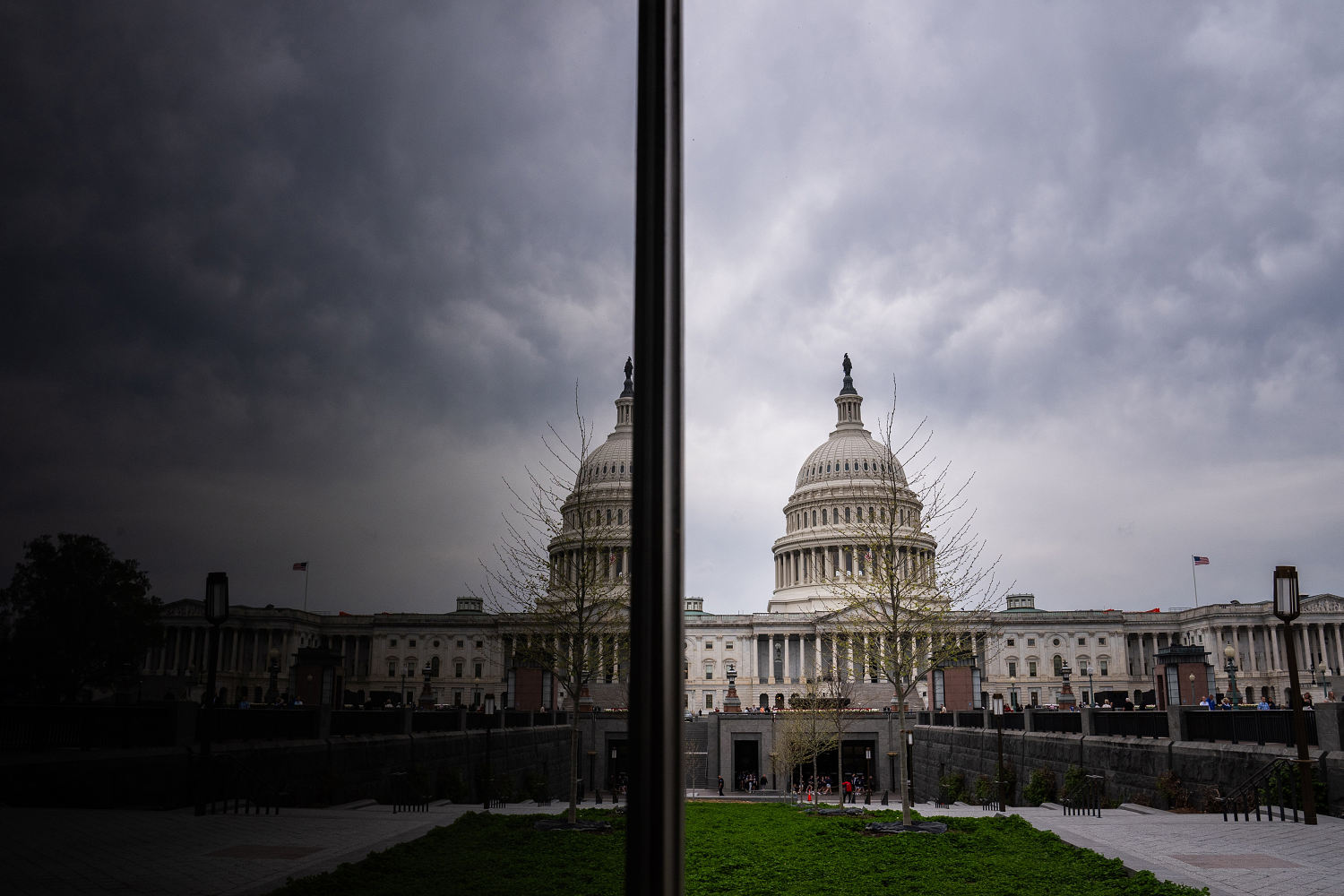

Republican lawmakers have introduced legislation over the last week that could give the federal government a tighter grasp on some tech platforms, while easing up government scrutiny on artificial intelligence.
The Republican-led House Energy and Commerce Committee’s budget reconciliation bill was introduced Tuesday and would give the federal government the ability to update IT systems as well as use AI systems at the Commerce Department. The bill would also put a pause on states’ ability to enforce AI regulations for the next decade to allow the American AI market to grow and be studied.
While some politicians have been skeptical and critical of AI, the Trump administration has been vocal about seeking to encourage the growth of the AI industry in the U.S. with few guardrails.
On Friday, to cap off President Donald Trump’s Middle East trip, the administration announced a deal with the United Arab Emirates to build a massive data center in the country that will serve American tech companies.
While Republicans have worked to protect AI, lawmakers have also introduced bills that would tighten regulations on some tech companies.
Two of the bills could make rules for tech platforms and their users more restrictive with the intent of making children safer online.
On May 8, Sen. Mike Lee, R-Utah, introduced the Interstate Obscenity Definition Act (IODA), which would update “the legal definition of obscenity for the internet age,” Lee said in a statement.
IODA was first introduced in 2022, and again in 2024, but failed to become law.
IODA would change the definition of obscenity, which applies a three-pronged test to content, to anything that “appeals to the prurient interest in nudity, sex, or excretion,” and “depicts, describes or represents actual or simulated sexual acts with the objective intent to arouse, titillate, or gratify the sexual desires of a person.”
It’s currently illegal to transmit obscene content via telecommunications if it’s intended as harassment or abuse. The bill would remove the requirement for that “intent,” meaning it could criminalize any content deemed obscene that is transmitted via telecommunications systems.
Despite the bill lacking bipartisan support or additional recorded co-sponsors, it has gained attention online and in the media for language that could make pornography something that can be prosecuted under laws pertaining to obscenity. However, proponents of the law hope it will prevent children from viewing lewd and obscene content.
Currently, social media platforms are granted a “good faith” immunity under Section 230 of the 1996 Communications Decency Act, which means they can’t be held legally liable for most content posted on their sites, aside from a few exceptions. Although a news release from Lee about IODA didn’t specify who would be held legally responsible for newly obscene content, it said the bill is meant to create a uniform definition of obscenity, so it would be easier to identify and prosecute obscene content.
“Obscenity isn’t protected by the First Amendment, but hazy and unenforceable legal definitions have allowed extreme pornography to saturate American society and reach countless children,” Lee said in the statement. “Our bill updates the legal definition of obscenity for the internet age so this content can be taken down and its peddlers prosecuted.”
On Wednesday, the bi-partisan Kids Online Safety Act (KOSA), which would hold websites accountable if they host content that is harmful to children, was reintroduced in the Senate.
KOSA was first introduced in 2022 by Sens. Marsha Blackburn, R-Tenn., and Richard Blumenthal, D-Conn., but failed to make it out of the chamber. During the 2023-2024 congressional term, KOSA was introduced again with amendments to address concerns over the vague wording in the bill. In July, KOSA passed in the Senate, but by the end of 2024, it had failed to advance in the House.
The latest version of KOSA states that the bill would require social media platforms to “remove addictive product features,” give parents more control and oversight of their kids’ social media, create a duty for platforms to mitigate content focused on topics like suicide and disordered eating, and require transparency from social media platforms to share the steps they’re taking to protect children.
Those who are in favor of the bill say it would hold platforms legally accountable if they host harmful content that minors should not view. Opponents said it could inadvertently affect sites that host LGBTQ content. They’re also concerned it could lead to more censorship online.
“Sponsors are claiming—again—that the latest version won’t censor online content. It isn’t true. This bill still sets up a censorship regime disguised as a ‘duty of care,’ and it will do what previous versions threatened: suppress lawful, important speech online, especially for young people,” Joe Mullin, senior policy analyst for the Electronic Frontier Foundation, said in a statement.
However, updates made to the bill help to make its reach less broad and remove attorneys’ general ability to prosecute platforms. It also makes more precise the harm it expects social media and other websites to protect against. This has led to some opponents of the bill changing their stance.
The bill was reintroduced with Senate Majority Leader John Thune, R-S.D., and Minority Leader Chuck Schumer, D-N.Y., signing on. Last year, the bill passed in the Senate, 91-3, but died in the House. The current bill has been backed by Apple and Republican figures including Trump and Elon Musk.
In a statement, Apple’s senior director of government affairs for the Americas, Timothy Powderly, said the company was happy to offer its support for the bill, adding that everyone has a role to play in keeping children safe online. He also acknowledged the concerns around KOSA and praised the senators for working to improve the bill.
“As longtime advocates of privacy as a fundamental right, we believe these improvements are important, and hopefully the first steps towards comprehensive privacy legislation that ensures everyone’s right to privacy online,” Powderly said.
Critics have pushed back on both bills as some say they could result in overly policed speech online.
Matt Navarra, a social media consultant and analyst who has worked with companies like Google and the U.S. and U.K. governments, said the bills — particularly KOSA — could have significant ramifications for social media platforms and the way people use them. Navarra said KOSA would force platforms to “rethink recommendation engines, notifications, data tracking works for minors.”
“For engagement-driven platforms like TikTok or Instagram, that’s a radical shift — it’s not just about what’s allowed, it’s about how addictive and immersive experiences get redesigned or dismantled,” he said. “So KOSA is less about content policing and more about an algorithmic detox especially for teens.”
Adults would likely also see a major change in what is accessible online if IODA becomes law.
“In terms of the things that people are concerned about with the bill, particularly around censorship, KOSA does sort of introduce a duty of care that sounds good in theory but in practice could push platforms into over-moderating or flat-out removing content just to avoid the risk,” Navarra said. “And the obscenity bill wraps this up even more.”
 Latest World Breaking News Online News Portal
Latest World Breaking News Online News Portal






